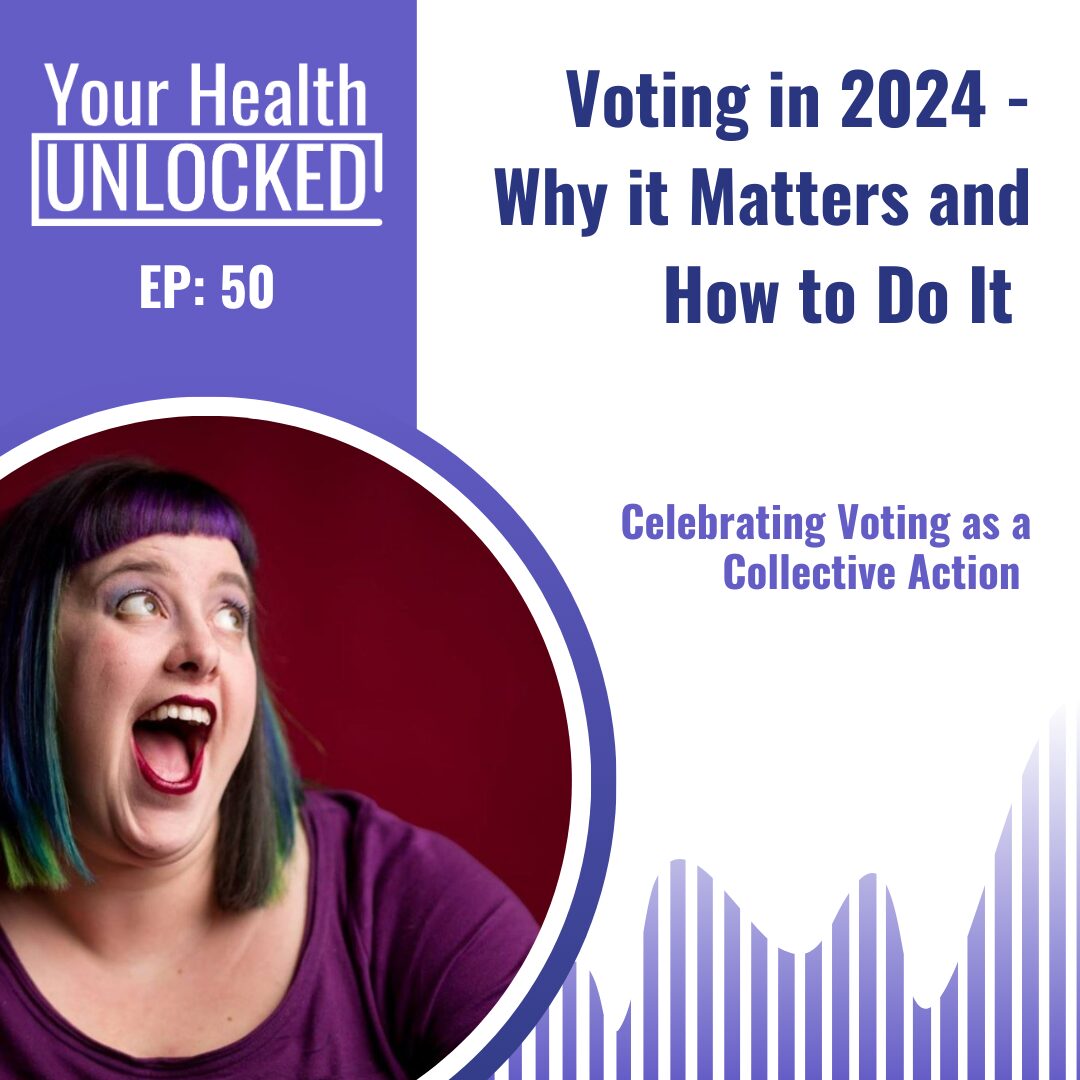
Your Health Unlocked Episodes
050: Voting in 2024 – Why it Matters and How to Do It
July 25, 2024
---
Your Health Unlocked Episodes
Publication Date: November 16, 2023
By: Rachel Grimsley, (RN, BSN, MSN) Volunteer Health Officer

Have you ever had a time when you just had to go? Maybe during a long car drive or waiting in the never-ending line for the bathroom? For over 25 million adult Americans it’s worse than just “I gotta go,” as they experience unintentional leaking of urine due to temporary or chronic urinary incontinence (UI).
UI can affect people of all ages, but it’s more prevalent among women over 50 and the risk worsens as women age. The impact of incontinence on a person’s quality of life can be severe, contributing to isolation, loneliness, mobility issues, and other comorbidities. Unfortunately, the commonly believed myth that this is just a “normal part of aging” or that there are no effective treatments, means many people do not access the care they need. To bust these myths and learn more about urinary incontinence causes, symptoms, treatment, and the state of UI research, we sat down with Dr. Tatiana Sanses and Dr. Chidubem Egboluche of Howard University. Join us as we elevate a topic that too often gets overlooked and stigmatized by society.
Dr. Sanses is an Associate Professor at Howard University and a Chief of Female Pelvic Medicine, Reconstructive Surgery, and Urogynecology at Howard University Hospital. She is a clinician-surgeon-scientist with expertise in urinary incontinence treatments for older women.
Dr. Egboluche is a recent graduate from the MPH program at Howard University with 5 years of experience in health care, including Women’s Health research. Dr. Egboluche assists Dr. Sanses with statistical analyses and other women’s health research projects.
“Prevalence of Urinary Incontinence among a Nationally Representative Sample of Women, 2005-2016: Findings from the Urologic Diseases in America Project” by urologist Dr. Una. J. Lee analyzed data from 15,003 women aged ≥20 years who participated in the 2005-2016 National Health and Nutrition Examination Survey and estimated the prevalence of urinary incontinence in the prior year, overall and by subtype (stress, urgency or mixed). You can view the results here.
Urinary incontinence (UI) is a common condition in all demographics of women and consists of stress UI (SUI), Urgency UI (UUI), and mixed UI (MUI). Treatment includes lifestyle modifications, medical treatment, and surgery depending on the type of UI and severity of symptoms. This review is an update on the evaluation and management of UI in women.
Read “The Iceberg of Health Care Utilization in Women with Urinary Incontinence” – a study by Vatche A Minassian, which showed that only a minority with UI appears to seek care and a fraction sees a pelvic floor specialist, highlighting the importance of not only educating women, but also primary care providers about this highly prevalent yet treatable condition.
Read Dr. Sanses’ study: “Physical performance measures in older women with urinary incontinence: pelvic floor disorder or geriatric syndrome?”, which evaluated the physical performance measures of mobility and functional impairments and assessed their association with urinary incontinence (UI) severity and impact on quality of life among older women with UI.
Some Terms and Linked Definitions:

